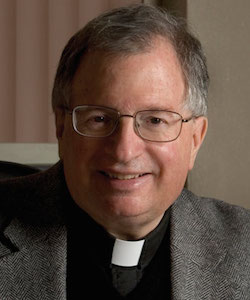
Development Challenges and Global Governance: The Long View
Joel Hellman | September 11, 2015
Responding To: SFS Dean Inaugurates Georgetown's Discussion of Global Governance
Justin Rattey
Joel Hellman is right to focus on time: It is perhaps the most important—and most underappreciated—element of global governance.
As Professor Marc Busch writes, at least part of the time calculus is that some countries (and donors) favor short-term projects because they want to see change in years rather than decades. But, for real change to occur, we need coordination around long-term goals. Those goals are likely to take longer than a generation and, in order to succeed, may even outlive the people who propose them.
It is for that reason that global governance needs to reaffirm the cliché yet important emphasis on altruism. To craft plans that will take a quarter-century (which was, for Haiti, the most optimistic of timeframes in Mr. Hellman’s presentation) takes leadership that is more concerned about development than ego.
Projects that matter will outlast a presidential term. They will outlast an administration. They will inevitably even outlast the lifetimes of their creators because, if done right, they should adapt to accommodate challenges, accomplishments and the dynamics of a world in flux.
At the beginning of Georgetown’s semester-long conversation on global governance, it’s worth re-emphasizing the importance of altruism. Leaders must focus on public good even—and perhaps, especially—when that good outlasts their tenure. Enlightenment thinker Immanuel Kant ascribed little value to those contracts that deferred rather than prevented international conflict. A similar ethos is necessary among our leaders and global institutions whose actions and plans should be directed towards long-term growth and stability.
John Monahan, in his previous post, discussed the myriad challenges of global governance. In an increasingly globalized world, leaders and institutions must be prepared to address the dynamics of a multi-player system that involves governments, NGO’s, businesses, and more. Adding the temporal dimension to that equation complicates it further. It is fortunate that institutions such as Georgetown are so well equipping students for the necessarily altruistic environment of global governance.
Justin Rattey is a Ph.D. candidate in Georgetown's Department of Government.

Joel Hellman | September 11, 2015

Desha Girod | September 10, 2015

Drew Christiansen | September 10, 2015

Emmanuel Foro | September 10, 2015

Erwin Tiongson | September 10, 2015

Fr. Kevin O'Brien | September 10, 2015

François Pazisnewende Kaboré | September 10, 2015
James Vreeland | September 10, 2015

Katherine Marshall | September 10, 2015

Marc Busch | September 10, 2015

Marion Abboud | September 10, 2015

Patrice Ndayisenga | September 10, 2015

Tobias Vestner | September 10, 2015

Shareen Joshi | September 9, 2015